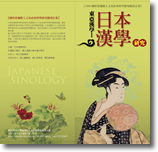已執行計畫 / 日本漢學研究
日本漢學研究
| 所屬學門 | 文學I |
|---|---|
| Project Discipline | Literature I |
| 計畫名稱 | 東亞漢學研究I -日本漢學研究 |
| Project Title | East Asian Sinological Studies I - Japanese Sinological Studies |
| 計畫主持人 | 祝平次 |
| PI | Ping-Tzu Chu |
| 共同主持人 | 劉人鵬、陳玨、莊慧玲 |
| co-PI | Jen-Peng Liu, Jue Chen, Hwei-Lin Chuang |
| 執行單位 | 清華大學中國文學系 |
| Institution/Department | Department of Chinese Literature, NTHU |
| 執行期限 | 12/01/2007~11/30/2010 |
| Project Period | 12/01/2007~11/30/2010 |
| 計畫書目 | 連結 |
| Book List | Link |
| 計畫簡介 | 本計畫典藏的目的在於擴展傳統日本漢學的範圍,建立起能呈現日本對中國人文研究成果的基礎書庫;並藉著書庫的建立,開展出新的研究領域,達成吸收與研究日本對中國人文研究的成果。計畫的重點主要分成三個部分:第一部分在於建立傳統日本漢學的完整書單;第二部分在於建立了解日本與中國文化長期混融之間種種面向的基礎書單,亦即在近代漢學興起以前,如何了解中國文化與日本關係之問題;第三部分則在於建立新的學科型態下日本對中國人文研究的基礎書單,亦即在近代漢學建立之後,在不同的歷史情境之下,如何變形與發展的問題。本採購計畫,一方面在於完備傳統日本漢學的收藏,一方面在於往前、往後延伸傳統日本漢學的範圍,以對日本的中國人文學能有一整體的觀照;並藉由這個計畫的執行,促進台灣學界對於日本中國研究成果的了解以及運用,同時也可藉由日本中國研究內容、形態的轉變來了解日本。國內對於第一部分的收集相較而言,比較齊全;對於第二部分、第三部分的資料彙集整理,則尚需有計畫地進行。本計畫的進行,將隨時以日本國會圖書館、東京大學、京都大學的藏書做為參照的基點,來完成計畫預設的目標。 |
| Introduction | This collection projects aims at building up a full range perspective of Japanese sinology or Japanese humanistic studies on China. For achieving this purpose, the collection is divided into three parts. The first part includes the material which is defined as “Japanese sinology” or shinagaku 支那學 formed under the background of Japanese imperialism. However the contribution of Japanese sinology toward understanding China past of present is well recognized. Thus a comprehensive collection of the first part will be given highest priority. The second part will collect books which can represent how Japanese understood Chinese culture within themselves before the aforementioned sinology was constructed. Although the history of the connection between Japan and China is well studied, how to form an internal history of Japanese views on the this connection is still waiting to be fulfilled. The third part will collect books which can represent the changes and transformation between the traditional sinological studies and modern scholarship. In short, this project sets up the Japanese sinology as the central point and tries to extend it forward and backward in term of temporal sequence. Only with a collection like this, we can grasp the fruitful result of Japanese scholarship on China and furthermore study a specific aspect of Japan through its understanding of China. To guarantee the success of this project, the libraries of Tokyo University, Kyoto University, and Japanese Congree will be consulted from time to time through the execution period. |

